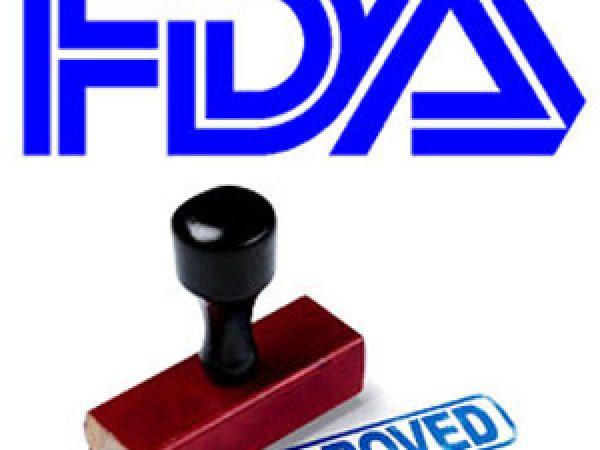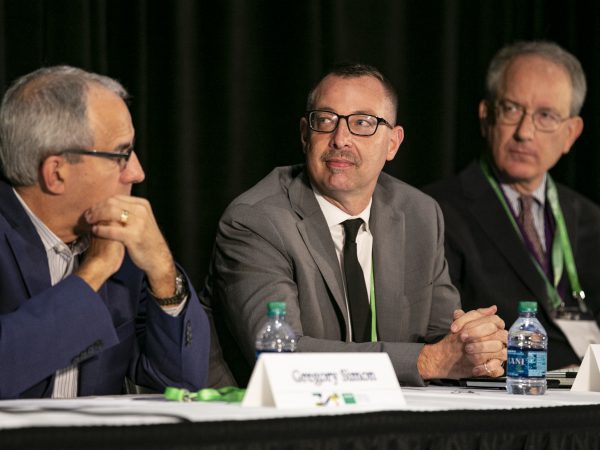Leading Cancer Experts Comment on the Cancer Initiative in the State of the Union Address
Editor’s Note: Several prominent American Association for Cancer Research (AACR) leaders have shared their reactions to President Obama’s Jan. 12 State of the Union address with the news media and with fellow AACR cancer researchers. We’ve captured some of these reactions in this post. See what these cancer research experts have to say about the pronouncement, and what the organization wants to do to contribute to this initiative:

AACR President José Baselga, MD, PhD:
“We have indeed reached an inflection point, where the number of discoveries that are being made at such an accelerated pace are saving lives and bringing enormous hope for cancer patients, even those with advanced disease,” said AACR President José Baselga, MD, PhD, physician-in-chief and chief medical officer at Memorial Sloan Kettering Cancer Center. “Now is the time for a major new initiative in cancer science that supports and builds upon our basic science foundation while translating these exciting scientific discoveries into improved treatments for cancer patients, such as in the areas of genomics, precision medicine, and immuno-oncology. Tonight’s State of the Union address underscores the importance of collaborations if we are to achieve the vision that President Obama has outlined.” (AACR news release)
AACR CEO Margaret Foti, PhD, MD (hc):
“The AACR has consistently advocated for robust, sustained, and predictable funding increases for the NIH and NCI, as well as for science-based, patient-centered cancer science and public policies that will make quantum leaps forward toward improving the health of all Americans,” said Margaret Foti, PhD, MD (hc), chief executive officer of the AACR.
“There are 14.5 million cancer survivors who are alive today because of cancer research, and tonight’s announcement has the potential to dramatically increase this number. The AACR also wishes to thank all of the dedicated patient advocates for their vital role in providing the patient perspective on cancer and for emphasizing to the general public the opportunities in cancer research that are before us today.” (AACR news release)
George Demetri, MD, director, Center for Sarcoma and Bone Oncology; Professor of Medicine, Dana-Farber Cancer Institute, and member, AACR Board of Directors:
“We can do to cancer what the generation before me did to infectious diseases in the 20th century … We haven’t gotten rid [of diseases like polio and tuberculosis] but we don’t fear them the way my grandparents and even my parents did. At some really deep level, the public now gets that these diseases are manageable. They don’t feel that primal fear.” (from an interview with the LA Times)
Victor Velculescu, MD, PhD, co-director of Cancer Biology; Professor of Oncology, Sidney Kimmel Comprehensive Cancer Center at Johns Hopkins, and member, AACR Board of Directors:
“Increasingly, patients at leading cancer centers are getting their tumor genes mapped to help guide treatment. If hospitals pool that genetic information, researchers can more rapidly learn which drugs best match which patients,” says Dr. Victor Velculescu of Johns Hopkins University and the American Association for Cancer Research.
AACR just began Project GENIE as a first step, a database run by seven hospitals from the U.S., Canada, France and the Netherlands that so far have shared tumor data from about 17,000 patients. Velculescu says Biden’s efforts could spur larger collaborations.
Only a fraction of cancer patients get that kind of tumor testing today, in part because Medicare and other insurers don’t routinely pay for it, Velculescu says. His group wants Medicare to change that.” (from an interview with Associated Press)
Benjamin Neel, MD, PhD, director, Laura and Isaac Perlmutter Cancer Center at NYU Langone Medical Center, and member, AACR Board of Directors:
“It is very encouraging to see the president use his final State of the Union message to call for a major effort to cure cancer. Of course, those of us who are old enough remember President Nixon announcing a ‘War on Cancer’ 45 years ago. Unfortunately, we had neither the weapons nor the strategy to fight that war. Fundamentally, we didn’t really know what cancer was, and as a result, we were in no position to effectively combat it.
“The last fifteen years have witnessed a revolution in our understanding of cancer biology and medicine. Unlike in 1971, we know the enemy, and we have the strategy and the weapons to defeat it. What we need are the soldiers and the budget. After seven years of starving the nation’s healthcare research enterprise, I and my colleagues hope that both sides of the aisle will take on the challenge that President Obama has thrown down. It is no exaggeration to state that all that is needed to end cancer is time, effort and money. Cancer scientists and clinicians stand ready to supply the first two. We hope that the president’s initiative will provide the resources to complete the job.” (prepared statement)
William Nelson, MD, PhD, director, Sidney Kimmel Comprehensive Cancer Center at Johns Hopkins, and editor-in-chief of Cancer Today, the quarterly magazine for cancer patients, survivors, and caregivers published by the AACR:
“I was thrilled and excited. I think to have the President of the United States throw out a bold challenge to cancer researchers, physicians and one that, you know – delivered directly to the American people, many of whom have been touched by cancer, confronting the disease directly or with family members affected by it, I think it’s just a great day for us.” (from an interview with NPR)
NCI Acting Director Douglas Lowy, MD:
“In a hopeful era, we need hopeful leaders, so we applaud the President and Vice President’s commitment to change the face of cancer as we know it,” said Douglas R. Lowy, MD, acting director of the National Cancer Institute. “Thanks to many years of work by dedicated cancer researchers, we have, within our reach, real opportunities to prevent, successfully treat, or even eliminate many forms of cancer in adults and children. The National Cancer Institute stands ready to realize the administration’s efforts, support the American Association for Cancer Research and other cancer leaders, and change the future for all affected by cancer.” (AACR news release)
Barrett Rollins, MD, PhD, chief scientific officer, Dana-Farber Cancer Institute and the Linde Family Professor of Medicine at Harvard Medical School:
“Last week some of my Dana-Farber scientist colleagues and I joined a delegation of other leading cancer researchers assembled by the American Association for Cancer Research to discuss this initiative with Vice President Biden’s staff. They were looking to experts to suggest some high-value, near-term actions, and we made two recommendations.
“First, researchers are collecting enormous amounts of data from genomic tumor analysis – data that can be linked to information on how patients’ cancers respond to targeted drugs…
“Second, panels of tests such as the kind that we do with Profile can help improve patients’ outcomes, but they are costly…
“This is an exciting time to be a cancer researcher. We’ve made so much progress and we see the promise of what’s ahead. Together – researchers, academics, insurers, pharma and government – will make this moon shot successful and alleviate the suffering of so many patients and families. This is our challenge and opportunity.” (excerpt of a post that originally appeared on WBUR’s Common Health blog)



